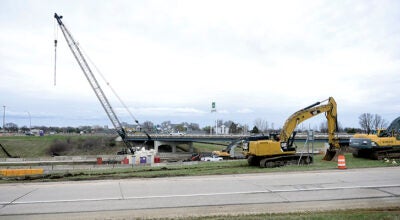Look back at Wilson strike by some who lived it
Published 12:06 pm Saturday, March 6, 2010
Before Albert Lea’s United Packinghouse Workers Local 6 drew national attention in 1959 for their involvement with the Wilson & Co. strike, they were average citizens just trying to make a living.
Some had started at the packinghouse right out of high school, others were married with children and yet others had worked at the plant for decades.
But no matter what the experience, each worker was affected in some way, and for many their lives were interrupted.
Fifty years after the last day of the strike, the Tribune interviewed four former Wilson & Co. workers about their experiences at that time. They said it took years to overcome the experiences they went through.
Robert Pleiss, 88, has lived in Albert Lea his whole life, and spent 35 of his years working at Wilson & Co.
His father worked at Wilson & Co., too, as a barrel maker, and Pleiss remembers carrying his father’s lunch down Pillsbury Road and then to the plant, which sat where today’s vacant Blazing Star Landing is.
Pleiss started at the packing house in 1939 right after high school. After being drafted into the U.S. Army for three years, he came back and worked at the plant for a while before another strike began in 1946. His mother encouraged him to find another place to work or to go back to school.
So he graduated from Luther College and taught some, but then came back to the plant in middle management.
“So many of the people who were striking were friends of mine,” he said. “It was so difficult to see the conflict. If we could have sat down and talked this thing out, there probably never would have been a strike.”
Pleiss said in the months leading up to the ’59 strike, he anticipated trouble but never realized it was going to get as violent as it did.
The company hired temporary workers, many of them farmers from the area, to keep the plant in operation. Pleiss saw strikers smashing windshields, he said. But he also recalled walking through the picket line every morning for a long time. He would greet the strikers; many were his friends, and he said he was never bothered by them.
At one point, Pleiss and some others ended up living in the plant for four to six weeks because of how the situation had escalated. As middle management, he worked alongside the temporary employees.
He recalled conversations on the phone with his daughter at that time, who was probably 4 or 5, who would ask when he was coming home.
He also recalled one day when he looked out the plant up to the Main Street viaduct and saw 3,000 people looking down at the packinghouse yard.
“I had no animosity toward those people at all,” he said. “The only difference was I thought the company was not evil. They are not our enemy. Without the company, nobody has a job.”
Pleiss said he still sees many of the people involved with the strike out in the community. He doesn’t talk about what happened with them, saying he would prefer to “let it lie.”
Bob Anderson, 70, of Albert Lea, worked 43 years at Wilson & Co., starting in the stockyards in 1958. He was 19 when the strike started, still living at home, and his father worked at Wilson too.
He said he thinks Wilson & Co. offered the union workers enough of a raise but said he thinks the argument was more about fringe benefits.
“Being 19, I wasn’t so much concerned about all that,” Anderson said.
He pulled picket duty every few days and still has his duty card to show it.
He said he “didn’t get too wild,” with his protests, though he knew some of the people who did. He remembers seeing a car nose-down in the channel.
“It wasn’t a fun time, I know that,” Anderson said. “And you were wondering if you’re ever going to have a job.”
Wayne Jahnke, 71, of Albert Lea, worked 42 years at Wilson & Co., starting in 1959 after going to school in Mankato. He was 21 then, and the union was trying to get better pay and more benefits for the workers.
Though he was in Florida for most of the strike, he came back toward the end and picked up picket duty once a week for a couple hours.
He said there were “some hard feelings” for the people who were hired to replace the strikers’ jobs.
But most of those feelings have since passed, Jahnke said.
Arliss Bachtle, 74, of Albert Lea, worked 15 years at Wilson & Co., including as chief steward of the ham boning department.
In the time leading up to the strike, he said, “there was a feeling of definite unrest and not being treated fairly by the employer.”
“A lot of animosity was built up. It was like getting ready for a fight. You kind of felt it was inevitable what was going to happen.”
He said he became the captain of his shift for picket duty and was responsible for making sure his crew was in order. He declined to answer whether he was involved with any of the violence that resulted in the National Guard being called into Albert Lea.
“There was tension, of course” with those who crossed the picket lines, Bachtle said.
And looking back, he said, it was hard to forgive, but he felt he had to because of his Christian beliefs. It probably took five or six years after the strike to do so.
“You build up a form of hate,” Bachtle said. “There were friends and neighbors and relatives that did cross the picket lines.”
And while he has forgiven, he said he has not forgotten. He still remembers those who were strikers and those who were strike breakers.
“If the situation was to happen again, I’d do it the same,” Bachtle said. “If you get pushed into a corner, you’re going to come out swinging, but there really shouldn’t have to be a strike.”





